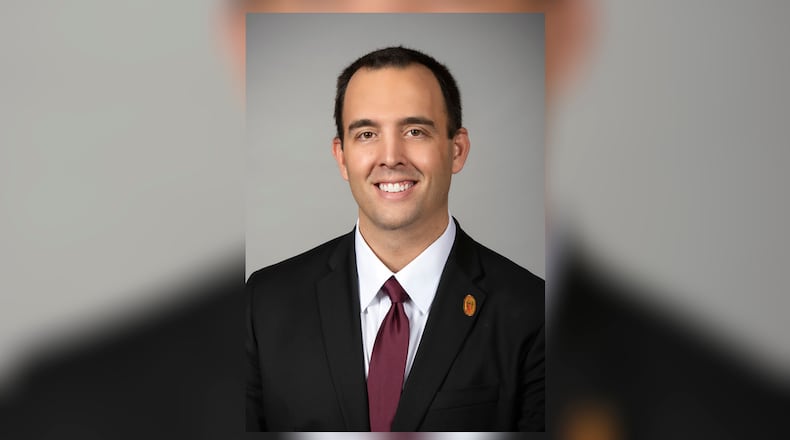Under this bill, an exemption from criminal liability would no longer apply to certain educators who engage in “pandering obscenity.” It would prohibit certain extreme materials from being displayed, distributed, rented, or purchased within educational contexts.
MORE ON THE TOPIC
• VOICES: Dayton Metro Library has and always will protect and promote the right to have access
• VOICES: House Bill 556 would silence, punish educators for doing their jobs
The penalties and definitions used in this bill are the same as we already have for our general ban on obscenity. Currently, our obscenity language has full exemptions for
any educational purpose, and House Bill 556 further refines that educational purpose to be directed to the actual goals that we want to accomplish. The Ohio Revised Code defines something as obscene if :
“It contains a series of displays or descriptions of sexual activity, masturbation, sexual excitement, nudity, bestiality, extreme or bizarre violence, cruelty, or brutality, or human bodily functions of elimination, the cumulative effect of which is a dominant tendency to appeal to prurient or scatological interest, when the appeal to such an interest is primarily for its own sake or for commercial exploitation, rather than primarily for a genuine scientific, educational, sociological, moral, or artistic purpose.”
Any work that fits the definition above has no place in a public-school library or math class. A second grader does not need to be dodging depictions of extreme violence or other obscene materials, nor should her parents have to worry about it.
We use the same penalties and definitions as the rest of the Ohio Revised Code so our prosecutors, judges, attorneys, and publishers can apply the experience they have built for decades in Ohio knowing what is and is not obscenity with little incident.
Educational materials should uplift, inspire, and forge good citizens. House Bill 556 strikes a delicate balance. While respecting academic freedom, we protect speech and research while also protecting our children. This is a targeted bill, focused only on K-12 educational
spaces. The bill preserves exceptions for higher education, biology and health teachers, and diligent researchers—individuals with a “bona fide” reason to engage with potentially sensitive material.
Crucially, House Bill 556 builds trust between parents and educators. When parents send their children to school, they place their trust in teachers and administrators. Ensuring that obscenity is not readily available in math classes or libraries for second graders fosters that trust. It reassures parents that their children’s innocence is safeguarded within the walls of our schools.
Ohio’s moral compass points toward responsibility, integrity, and the well-being of the next generation. House Bill 556 embodies these principles. Let us pass it swiftly, reaffirming our commitment to educational excellence and the trust placed in us by parents across our great state.
State Representative Adam Mathews is serving his first term in the Ohio House of Representatives. He represents the 56th Ohio House District, which encompasses southwest and central Warren County including Lebanon, South Lebanon, and Mason.
About the Author
